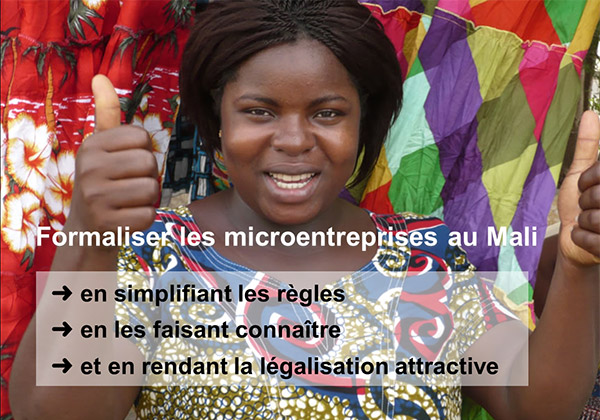Formalize
the informal sector:
Make formalization easy and desirable
A majority of the world’s active population works in the informal economy
1.8 billion people work in informal jobs compared to 1.2 million who benefit from formal contracts and social security protection. That number is projected to grow to two thirds of the workforce by 2020. Informality manifests itself in many ways, but especially in land and housing ownership, business operations and labor.
There is a widespread misconception that the informal economy is somehow illegal, or even criminal. A clear distinction should be made: illegal activities go against the law;
informal activities are 'extralegal'
, in the sense that they are not officially declared and do not take place in the realm of the laws which should govern them. “The recent re-convergence of interest in the informal economy stems from the recognition that the informal economy is growing; that it is a permanent, not a short-term, phenomenon; and that it should be viewed not as a marginal or peripheral sector, but as a basic component of the total economy”.
Informality results from lack of knowledge and complexity of procedures.
Procedures should be clear and simple; entrepreneurs should know the benefits of complying with the rules.
Success story: micro entrepreneurs get formalized in less than an hour in Mali, filling only one form and showing only a copy of their ID cards. Health inssurance and tax exoneration will be part of the benefits they get.





